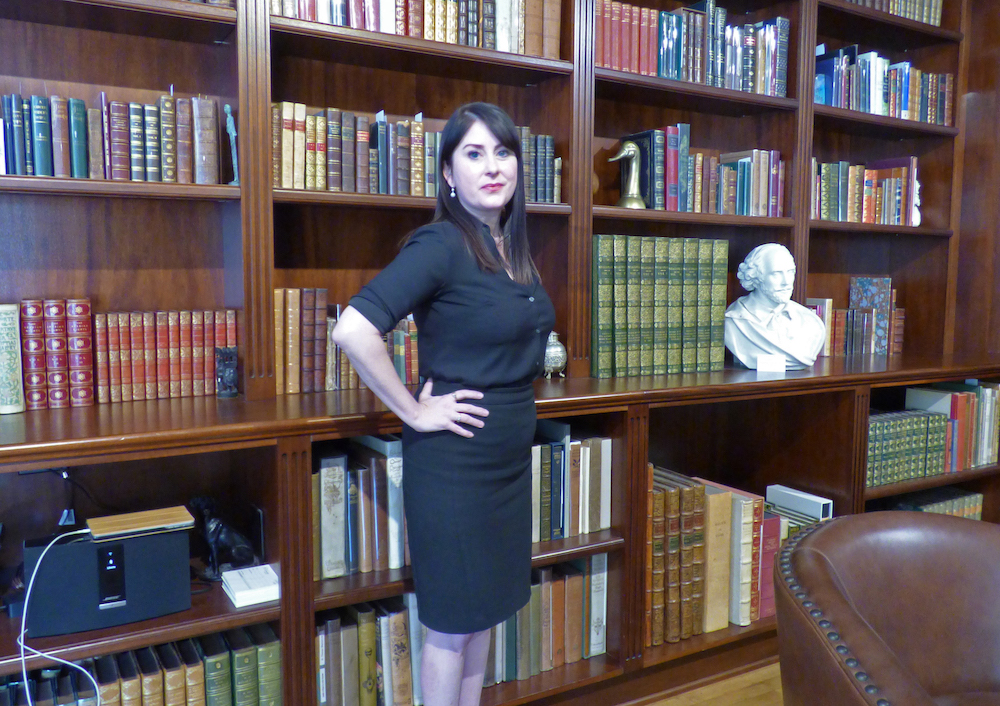Miranda Garno Nesler earned her PhD from Vanderbilt University and serves as the director of Women’s Literature & History for Whitmore Rare Books in Pasadena.
ARTILLERY: How did you get started in dealing with rare books?
GARNO NESLER: Books have always been there for me. Even as a child. I remember going to a vintage bookshop and desperately wanting this copy of Tennyson. It was really because I loved the binding and someone had written notes all throughout it and another person had responded to those notes. Many people say that they love books for the stories that they tell and that also is true for me but my own attraction is tied up in the physicality of books really. The bindings, signatures, inscriptions, notes in the margins, book plates that let you know who owned the book, a loose leaf folded and left inside it: All of these are the signs left by individuals.
What is your specific interest in the world of rare books?
I am and always will be a specialist in women’s material. My job is to look for print and manuscript material that is written by, for or about women and other marginalized communities. My task is to preserve rare material that otherwise might not survive. Increasingly as I participate in the rare book world, I have come to include more material of POC and the LGBT+ communities because women are often [included] and when they participate, these communities interlock. So my job is about how to find that which speaks to the important histories of these people and then as much as possible get it into the hands of institutions and libraries who can take my research forward, advancing the work of making these things known through exhibitions, continued research and education.
What is your most satisfying long-term accomplishment in this type of work?
It’s a little bit hard to explain but the greatest joy and it’s accomplished over time is actually being able to delve into this field as a dealer and see multiple versions of the same books. I get to physically handle them and compare them. So from a personal point of view that is extremely satisfying and then I can work with the broader community to have these materials saved so they can be accessed and conserved and used.
How do you think locating and distributing these books will contribute to making the world a more just and significant place?
The world at large generally views the rare book world as a small set of collectors. That is certainly part of the business, but I work primarily with institutions and libraries. Together we are finding collecting and putting these materials in a safe place where they can be used to recount the histories and the stories of others. I think that that is essential to give the world the tools and the voices to make it a more just and significant place.


